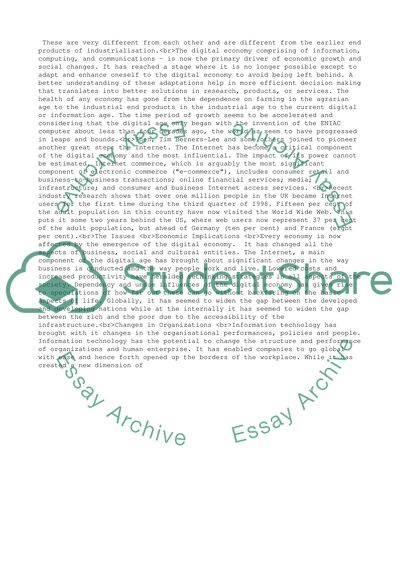Cite this document
(“The development of the Digital economy Essay Example | Topics and Well Written Essays - 3750 words”, n.d.)
The development of the Digital economy Essay Example | Topics and Well Written Essays - 3750 words. Retrieved from https://studentshare.org/business/1517636-the-development-of-the-digital-economy
The development of the Digital economy Essay Example | Topics and Well Written Essays - 3750 words. Retrieved from https://studentshare.org/business/1517636-the-development-of-the-digital-economy
(The Development of the Digital Economy Essay Example | Topics and Well Written Essays - 3750 Words)
The Development of the Digital Economy Essay Example | Topics and Well Written Essays - 3750 Words. https://studentshare.org/business/1517636-the-development-of-the-digital-economy.
The Development of the Digital Economy Essay Example | Topics and Well Written Essays - 3750 Words. https://studentshare.org/business/1517636-the-development-of-the-digital-economy.
“The Development of the Digital Economy Essay Example | Topics and Well Written Essays - 3750 Words”, n.d. https://studentshare.org/business/1517636-the-development-of-the-digital-economy.


